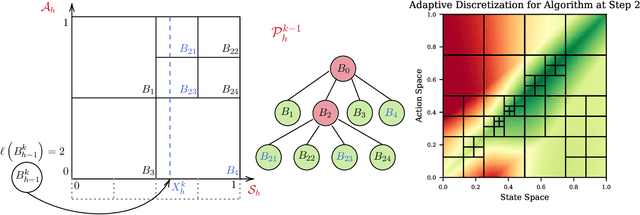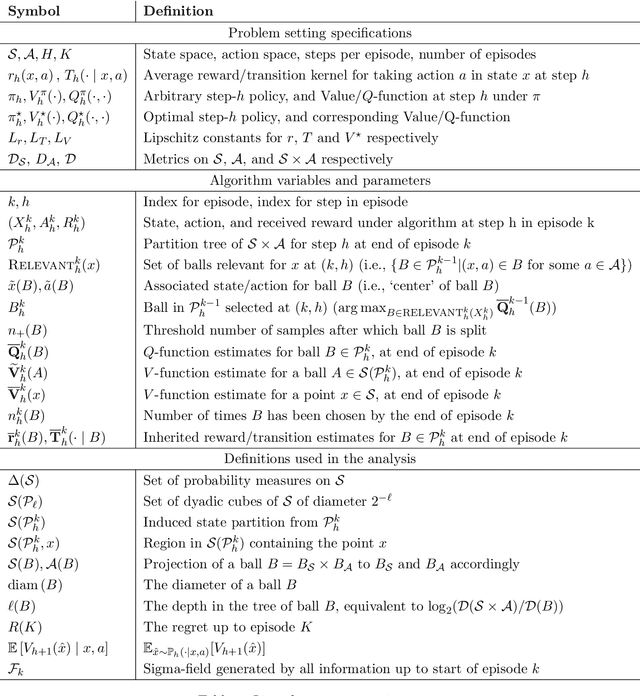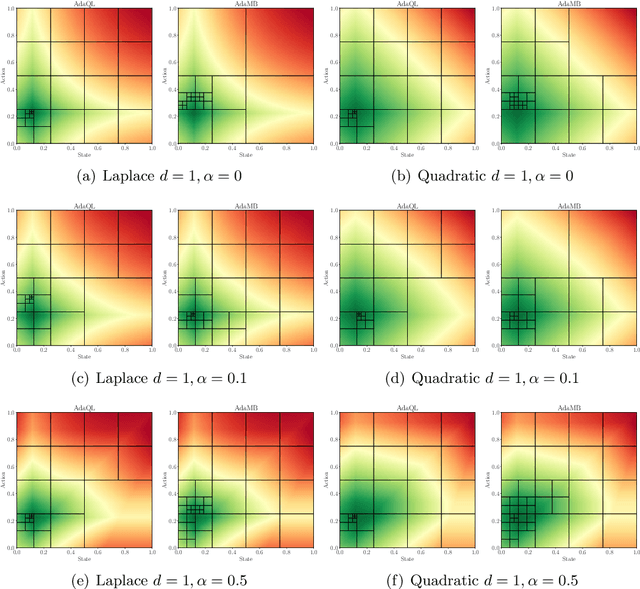Adaptive Discretization in Online Reinforcement Learning
Paper and Code
Oct 29, 2021



Discretization based approaches to solving online reinforcement learning problems have been studied extensively in practice on applications ranging from resource allocation to cache management. Two major questions in designing discretization-based algorithms are how to create the discretization and when to refine it. While there have been several experimental results investigating heuristic solutions to these questions, there has been little theoretical treatment. In this paper we provide a unified theoretical analysis of tree-based hierarchical partitioning methods for online reinforcement learning, providing model-free and model-based algorithms. We show how our algorithms are able to take advantage of inherent structure of the problem by providing guarantees that scale with respect to the 'zooming dimension' instead of the ambient dimension, an instance-dependent quantity measuring the benignness of the optimal $Q_h^\star$ function. Many applications in computing systems and operations research requires algorithms that compete on three facets: low sample complexity, mild storage requirements, and low computational burden. Our algorithms are easily adapted to operating constraints, and our theory provides explicit bounds across each of the three facets. This motivates its use in practical applications as our approach automatically adapts to underlying problem structure even when very little is known a priori about the system.
 Add to Chrome
Add to Chrome Add to Firefox
Add to Firefox Add to Edge
Add to Edge